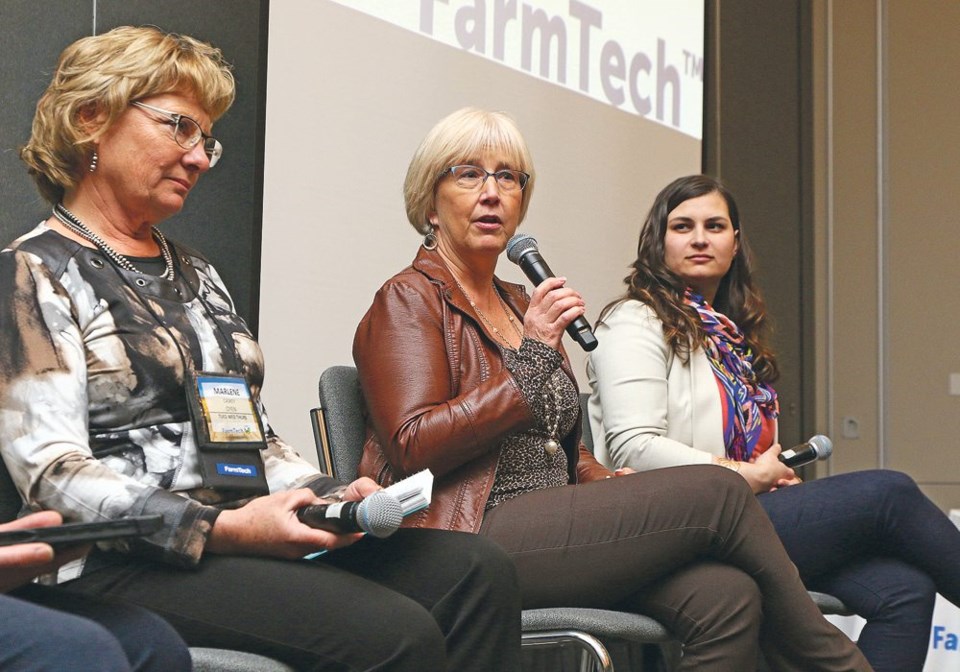The Alberta Wheat Commission elected its first female director at the FarmTech conference in Edmonton last week, a change that suggests the needle has moved slightly to get more women on ag boards.
The topic of diversifying boards was raised multiple times at the annual conference held Jan. 30 to Feb. 1. There was a panel dedicated to it, with female farm leaders encouraging women to step up if they know they’re ready for the job.
The Western Producer reported last November that only 12 percent of all board members on Prairie ag commissions that accept check-off dollars are women.
The low number is in contrast to Statistics Canada data that shows nearly 30 percent of all farm operators are women, and debate has since swirled around whether commissions should do more to attract women to their boards.
Some have said they don’t want to enforce a gender balance, where half of the board is men and the other half women. Others argue that a gender balance policy promotes diversity, which ensures better decisions are made
But Hannah Konschuh, who was newly elected to the province’s wheat commission, has a different view.
She doesn’t believe in setting a gender balance policy, but she said it’s important for organizations to actively diversify their boards.
“This debate over gender balance really detracts from the conversation we’re trying to have about the importance of diversity and ways to make it better,” said Konschuh, who farms near Cluny, Alta. “I want to know that I’m there for my skills, experience and value, and I know that’s the case with this position.”
Of the three crop commissions that held their annual general meetings at FarmTech, Alberta wheat was the only one to newly elect a woman.
In Konschuh’s case, she said wheat commission leadership sought her out for the job because they knew she was interested and they also wanted to make a change. She believes it would be great for other commissions to do the same.
“Thinking about how other women can come to join boards, or how to involve young farmers, it’ll take exploring your network and going beyond that,” she said. “It’s not necessarily the first call, but the second, third or fourth call.”
Karla Bergstrom, the manager of government and industry affairs with Alberta Canola, agreed that agriculture organizations need to do a better job in diversifying their boards.
“What’s not happening is the active recruitment for diversity,” she said. “You do see some strong women who have been on boards, and we need more of those women for other women to see them as those leaders, as people they can look up to.”
As well, organizations need to keep in mind that when they do elect female members, they may need to slightly alter how they go about doing business, said Renee DeWindt-Hoyme, a director with the Alberta Seed Growers Association.
“They have a family life and I think boards needs to keep that on their radar,” she said. “My board has been greatly supportive of me being a new mom and worked around my schedule so I can stay on the board.”
Konschuh said she hopes her decision to run for election inspires others to do the same.
“I hope to make it easier for other women to say, ‘oh, she’s doing it, so I can, too,’ ” she said. “I think the biggest thing is that organizations with more diversity are stronger, and there are many studies that show that. It’s not just feel-good stuff; it actually provides value.”




